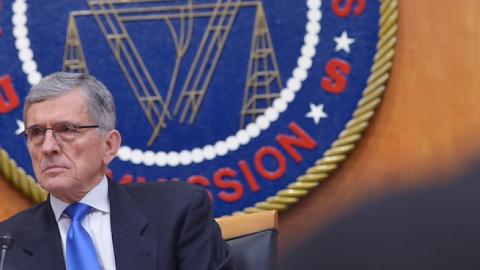We Americans generally have faith that our government operates according to legal authority and predictable rules. If a government-authorized camera records our car exceeding a speed limit, we pay the penalty because we have faith that proper procedures were followed.
Our faith is tested when a government agency is found to have operated outside of the rule of law. That is exactly what happened this week when the Senate Committee on Homeland Security and Governmental Affairs released a troubling report documenting how the White House bullied the Federal Communications Commission into issuing the “Open Internet Order.” In pressuring the FCC to classify broadband Internet as a public utility, despite the Commission’s reluctance to do so, President Obama made a mockery of federal administrative law and undermined any pretense of independence at the FCC.
According to the Administrative Procedure Act, when a federal agency seeks to create a new rule, it must give the public a meaningful opportunity to comment on the rulemaking. In order to solicit relevant public input, an agency must give parties the chance to reasonably anticipate the final regulation.
When the FCC initially announced a plan to write network neutrality rules, the Commission specified that it planned to do so pursuant to Section 706 of the Communications Act, in accordance with the DC Circuit’s blueprint provided in Verizon v. FCC. The Commission therefore sought public comments specifically pertaining to Section 706, a provision that gives the FCC light-handed authority to promote telecommunications access among Americans.
It came as a shock when, instead of promulgating network neutrality rules under Section 706, the Commission announced that it had classified broadband providers as common carriers under Title II of the Communications Act. There is an enormous difference between the two sections. Unlike the limited Section 706 authority, Title II gives the FCC the power to regulate practically every aspect of a service as a common carrier—from rates to interconnections with other providers. Instead of merely regulating how Internet providers manage network traffic, the FCC assumed the authority to micromanage the entire broadband industry.
By switching from the Section 706 approach to Title II authority, without soliciting additional comments, the FCC blindsided the public. The Commission deprived interested parties of the opportunity to comment on the rulemaking, in clear violation of its obligations under the APA.
Now we know why. According to the Senate Committee report, in early November 2014, the Commission staff were on the verge of circulating draft network neutrality rules in consideration of the comments received during rulemaking. Before the draft was circulated to the Commission—and just days after the November 2014 elections which resulted in substantial Democrat losses in Congress—President Obama released a speech on YouTube instructing the FCC to regulate broadband service providers under Title II. Commission staff were then abruptly instructed by the FCC’s chairman to “pause” the release of their draft—on the verge of being circulated in a matter of days—and ultimately to change course to a Title II approach.
Released emails show that FCC staff were concerned about what this abrupt change in course, ostensibly influenced by the President’s statement, meant for the legality of the FCC’s order. Staffers flagged problems with the FCC’s notice to interested parties, and cautioned that gaps in the record could prompt significant litigation risks. Instead of soliciting further public comment, however, the FCC surrendered completely to the President’s instructions.
Granted, the FCC is not barred from changing its position, even as it is about to circulate a draft order to the Commission. To paraphrase John Maynard Keynes: when the facts change, the FCC might reasonably change its mind. However, the only apparent ‘fact’ that changed was a speech from President Obama instructing the FCC to march in a different direction. And while the FCC may assign great weight to the President’s view, it must not disregard the rest of the public on account of White House pressure.
By foregoing further public consultation following the President’s intervention, the FCC did not even attempt to forge respect for the public’s views. This brazen disdain is exacerbated by the FCC’s failure to file ex parte notices for Chairman Wheeler’s many meetings with the White House once the FCC decided to change course. Such a lack of transparency gives the appearance of undue influence by the President and obliterates the appearance of independence at the FCC.
The APA is designed to give ordinary Americans the meaningful opportunity to participate in federal rulemaking. However, we may wonder if there is any value in submitting comments to an agency if rulemaking consists in little more than decree by fiat.
The President’s intervention in the network neutrality rulemaking is disturbing not only in its flawed interpretation of communications law, but also in its contempt for public input. It is incumbent on our government to do better in following basic administrative law and affirming the autonomy of independent agencies.
















